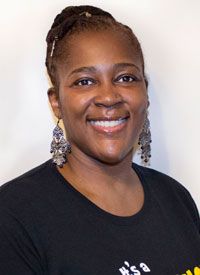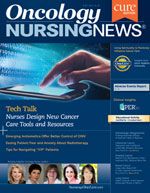Navigating "VIP" Patients With Cancer
Can I land my helicopter on top of the hospital? Can the doctor see my daughter before the clinic is open so she doesn’t miss too much work?
Angela Moore, BS

Angela Moore, BS
Can I land my helicopter on top of the hospital? Can the doctor see my daughter before the clinic is open so she doesn’t miss too much work? Can you schedule my dog with a specialist at the veterinary school clinic? As navigators for the “special needs” population (aka VIP, or very important patients) at a top ten NCI-designated cancer center, these are actual questions from our patients, who most often are major benefactors to our institution. Though these may be atypical questions for healthcare navigators overall, we share common ground with all navigators: we recognize the specialized needs of our patients, and we engage in a trusting, helping relationship to facilitate optimal care.
Maybe you’re thinking that VIPs don’t visit your facility, but depending on how a VIP is defined, every healthcare facility can have VIP patients. Of course, famous people or public figures, such as professional athletes, rock stars and Hollywood actors are inherently considered VIPs, but any person potentially could be designated as a VIP at a particular healthcare facility. Designated VIPs typically include benefactors, administrators, or donor prospects, but may also include the brother-in-law of the CEO or the cousin of a person connected with the facility, such as the dean or a top administrator.
When a person refers a patient to us and has labeled them a VIP, there may be an implicit or explicit message that this patient should receive “special care,” which is problematic in several ways. First, our providers, facilities, and health systems do wish to provide the same great care to everyone, regardless of status. Second, asking a healthcare professional to provide special care to a particular patient could imply that they are not providing great care to everyone, and the request could be received as an insult to their professionalism.
Of course as navigators, we’re not asking providers for different or better care, but sometimes notifying the staff of a person’s connection to our cancer center can be beneficial. For example, a physician may find it helpful to know that his patient is a local university president or a major benefactor who helped to fund the building we are working in.
As navigators, we use the term VIP judiciously when scheduling, as the term itself can be offensive to staff, especially because a goal of our facility is to reduce healthcare disparities. Many times providers and support staff have said to us that “everyone is a VIP” or, “I give the same care to everyone.” We would argue that some patients do need special considerations in deference to their position, status, or fame. For example, in this era of social media, a photo of a celebrity seated in the waiting area of a cancer center can be on the internet in a minute. Extending a small courtesy of arranging for a private waiting area can protect their privacy and identity, as well as their career.
Sandra Blackburn, MSW

Sandra Blackburn, MSW
Staff reaction to a VIP in the healthcare milieu can range from awe and admiration to resentment, which can affect the quality of care. If standard procedures are changed to accommodate the demands or expectations of a VIP, this can lead to predictable scenarios which have been organized into named syndromes in the medical literature. Psychiatrist Walter Weintraub wrote about VIP syndrome back in 1964; it’s initiated when standard care procedures are not adhered to, such as moving the location of care or switching providers. When rules are broken, it can contribute to care that is not better care, but actually worse than standard care.
Like all navigators working with specific populations, we’ve had to acquire a knowledge base of internal and external resources to help accommodate our VIP patients on a moment’s notice. Through in-person visits and frequent phone calls, we have developed relationships with colleagues in many departments at our facility. Transport will meet a patient at the front door at a specific time and Operations will help to ensure that the lab is ready for a patient. If we have a VIP who is an elected official or a public figure, we typically notify Security.
With our population we’ve become accustomed to receiving requests that are unrealistic. Patient expectations are high; they want their physicians’ cell phone numbers, e-mail addresses, and will often call them by their first name. Our patients are sometimes surprised that surgeons, for example, only see patients 1 day a week in clinic and therefore appointments are limited. Some may link their beneficence to the facility with expectations for same-day appointments for any malady or ‘front of the line’ expedited wait times in the Emergency Department.
As VIP patient navigators, we recognize that the financial resources at our patients’ disposal can move mountains. For example, one patient flew in from London for a single appointment and afterwards flew directly back. There are some VIP patients who we have never (or rarely) spoken to directly. Our relationship is often with their executive or personal assistants who have access to their schedules, habits, and preferences. For example one patient cannot be scheduled before noon on any date, due to his sleep schedule. Others are snowbirds and spend time here in the northeast and winter in Florida, so their medical appointments must be compressed into a brief window of time.
Patients call us miracle workers. Our success, at times, with setting up quick appointments with hard-to-get providers, can heighten their expectations for future encounters. We just try our best, every day. We are not successful every time, but we can appreciate these inspiring words of St. Francis of Assisi: “Start by doing what’s necessary; then do what’s possible; and suddenly you are doing the impossible.”
Sandra Blackburn has worked as a patient navigator, specifically with benefactors and other patients who are referred by Administration and Development, at the Abramson Cancer Center at Penn Medicine for nearly 15 years. Angela Moore joined the Abramson Cancer Center as a patient navigator in 2014 after a career at Health Partners, a Medical Assistance health plan, for 10 years as a case manager for the special needs and perinatal units.

Innovative Program Reduces Nurse Turnover and Fosters Development
Published: September 12th 2024 | Updated: September 12th 2024The US Oncology Network (The Network) has developed one of the most comprehensive programs in the nation to support the professional development and retention of new oncology nurses.
Innovative Program Reduces Nurse Turnover and Fosters Development
Published: September 12th 2024 | Updated: September 12th 2024The US Oncology Network (The Network) has developed one of the most comprehensive programs in the nation to support the professional development and retention of new oncology nurses.
Latest Conference Coverage
2 Commerce Drive
Cranbury, NJ 08512
All rights reserved.


